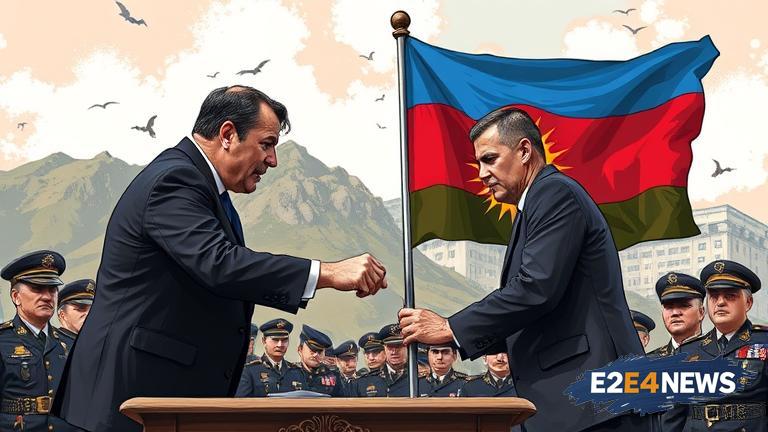The peace deal, brokered by Russia, has been met with widespread criticism from Armenians, who feel that it does not adequately address their concerns or provide sufficient protections for their community. The agreement, which was signed in November 2020, establishes a ceasefire and provides for the deployment of Russian peacekeepers to the region. However, many Armenians are unhappy with the terms of the deal, which they believe favor Azerbaijan. The Nagorno-Karabakh region has been the subject of a long-standing dispute between Armenia and Azerbaijan, with both countries claiming sovereignty over the territory. The region is predominantly inhabited by Armenians, who have their own government and institutions. However, Azerbaijan claims that the region is part of its territory and has sought to assert its control over it. The conflict between the two countries has resulted in numerous outbreaks of violence over the years, including a devastating war in the 1990s that displaced hundreds of thousands of people. The recent peace deal has done little to alleviate the concerns of Armenians, who fear that it will lead to the displacement of their community and the erosion of their cultural identity. Many Armenians have expressed outrage and disappointment at the terms of the deal, which they believe do not provide sufficient protections for their community. The deal has also been criticized by human rights groups, who argue that it does not adequately address the needs of civilians who have been affected by the conflict. The Armenian government has faced widespread criticism for its handling of the peace negotiations, with many Armenians accusing it of betraying their interests. The government has defended the deal, arguing that it is necessary to prevent further bloodshed and to establish a lasting peace in the region. However, many Armenians remain skeptical, and there have been numerous protests and demonstrations against the deal. The international community has also been criticized for its response to the conflict, with many arguing that it has not done enough to support the Armenian community. The United States, in particular, has been accused of failing to provide adequate support to Armenia, despite its historical ties to the country. The European Union has also been criticized for its response, with many arguing that it has not done enough to promote a peaceful resolution to the conflict. The conflict in Nagorno-Karabakh has significant implications for the region, and the recent peace deal has done little to alleviate the concerns of Armenians. The deal has also raised questions about the role of Russia in the region, with many arguing that it has sought to expand its influence at the expense of other countries. The situation in Nagorno-Karabakh remains volatile, and it is unclear what the future holds for the region. One thing is certain, however: the recent peace deal has done little to address the concerns of Armenians, and it is likely that the conflict will continue to simmer for years to come. The international community must do more to support the Armenian community and to promote a peaceful resolution to the conflict. This includes providing humanitarian aid to those affected by the conflict, as well as supporting efforts to promote dialogue and reconciliation between the two sides. It is also important to recognize the historical and cultural significance of the Nagorno-Karabakh region to the Armenian community, and to support efforts to preserve their cultural identity. Ultimately, a lasting peace in the region will require a commitment to justice and accountability, as well as a willingness to address the underlying issues that have driven the conflict. The recent peace deal is a step in the wrong direction, and it is likely that it will only serve to exacerbate the conflict in the long run.





